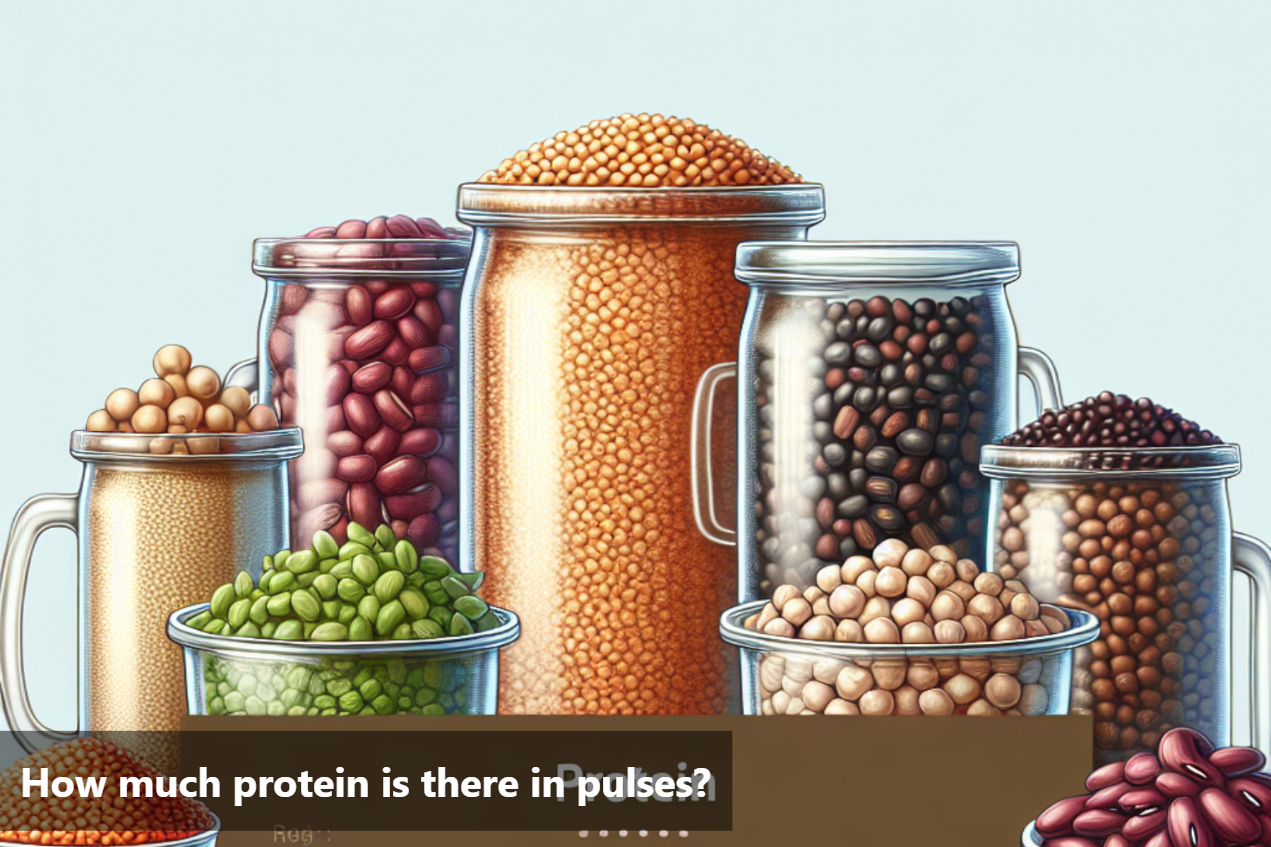
How much protein is there in pulses?
Pulses stand out as an excellent plant-based source of protein, making them an essential part of a healthy diet. These nutrient-dense legumes offer a significant protein content that rivals many animal-based sources.
Pulses are known for their impressive protein levels, with popular varieties such as lentils, chickpeas, and black beans containing substantial amounts of protein per 100g. Incorporating these protein-rich pulses into your meals can help meet your daily protein requirements in a wholesome manner.
When it comes to choosing pulses rich in protein, options like black beans and chickpeas are top contenders. These pulses not only provide an ample amount of protein but also offer a range of other essential nutrients. By including a variety of pulses in your diet, you can ensure a diverse intake of proteins and other beneficial compounds necessary for optimal health.

Nutrient Content in Pulses
Nutrient |
Amount in Pulses (per 100g) |
|---|---|
Protein |
20-25 grams |
Dietary Fiber |
6-8 grams |
Carbohydrates |
60-65 grams |
Folate (Vitamin B9) |
200-400 micrograms |
Thiamine (Vitamin B1) |
0.4-0.6 milligrams |
Riboflavin (Vitamin B2) |
0.2-0.3 milligrams |
Iron |
2-4 milligrams |
Magnesium |
100-150 milligrams |
Potassium |
350-500 milligrams |
Zinc |
2-3 milligrams |
Phosphorus |
250-350 milligrams |
Pulses Rich in Protein
When it comes to plant-based sources of protein, pulses stand out as nutritional powerhouses. The protein content in pulses varies among different varieties, making them versatile options for those looking to increase their protein intake in a plant-based diet.
Lentils, for example, are known for their high protein content, with approximately 9 grams of protein per 100 grams of cooked lentils. These small but mighty legumes pack a significant protein punch, making them a popular choice for vegetarians and vegans alike.
Chickpeas, another beloved pulse, boast around 19 grams of protein per 100 grams when cooked, making them a fantastic source of plant-based protein. Whether roasted for a crunchy snack or blended into creamy hummus, chickpeas are a tasty way to up your protein intake.
Black beans are also worth mentioning for their protein potency, delivering approximately 8 grams of protein per 100 grams. These versatile legumes are commonly used in soups, salads, and Mexican-inspired dishes, adding a protein boost to your meals.
-
Peas, including green peas and split peas, offer roughly 5-9 grams of protein per 100 grams, depending on the variety. They are not only rich in protein but also fiber and various nutrients.
Overall, pulses like lentils, chickpeas, black beans, and peas are excellent sources of plant-based protein, making them indispensable ingredients for a nutritious and balanced diet. Incorporating these protein-rich pulses into your meals can help you meet your daily protein requirements while enjoying delicious and satisfying dishes.
Incorporating Protein-Rich Pulses into Your Diet
If you are looking to boost your protein intake, pulses are an excellent addition to your diet. These versatile legumes are not only nutritious but also delicious when prepared in various ways. Here are some tips and ideas to help you incorporate protein-rich pulses into your daily meals:
Start your day with a pulse-packed breakfast: Consider adding chickpeas or lentils to your morning omelet or creating a savory pulse-based porridge for a protein-rich start to your day.
Swap out meat for pulses: Try replacing meat with pulses in your favorite dishes like tacos, stir-fries, or salads. It’s a simple way to increase your protein consumption while enjoying a plant-based alternative.
Blend pulses into smoothies: Yes, you read that right! Adding cooked lentils or beans to your smoothies can enhance the protein content without altering the taste significantly. It’s a sneaky yet effective trick!
-
Experiment with pulses in baking: You can incorporate chickpea flour or black bean puree into baked goods like brownies or cookies for a protein boost that is both nutritious and tasty.
By getting creative and exploring different recipes, you can easily elevate the protein content of your meals with the diverse range of pulses available. Enjoy the journey of discovering delicious ways to make pulses a staple in your diet!

Quantifying Protein in Pulses
Pulses are renowned for being rich sources of protein, with varying levels across different varieties. For example, chickpeas, lentils, and black beans are among the pulses that stand out for their high protein content, making them excellent choices for individuals looking to boost their protein intake.
The benefits of including pulses in your diet extend beyond the protein content. These legumes are not only rich in protein but also fiber, vitamins, and minerals, making them a wholesome addition to your meals. By choosing pulses as part of your regular diet, you're not only benefiting from their protein-rich nature but also supporting your overall well-being.
Embracing pulses as a staple in your diet can significantly contribute to meeting your protein requirements while reaping the numerous health benefits they offer. Whether you're a vegetarian, vegan, or simply looking to enhance your protein intake, pulses are a versatile and nutritious choice worth incorporating into your meals.
This Blog post is an initiative by Lo! Foods, to provide accurate and Nutritionist / Doctor approved information related to Health. Lo! Foods is India's leading brand for Everyday Functional Foods. Foods designed for specific Health conditions or Needs. Lo! Foods also runs India's largest range of Low Carb Healthy Cloud Kitchens, under the brand names of Lo!, ProteinChef, ATH (All Things Healthy) and DiabeSmart.











Leave a comment
Your email address will not be published.